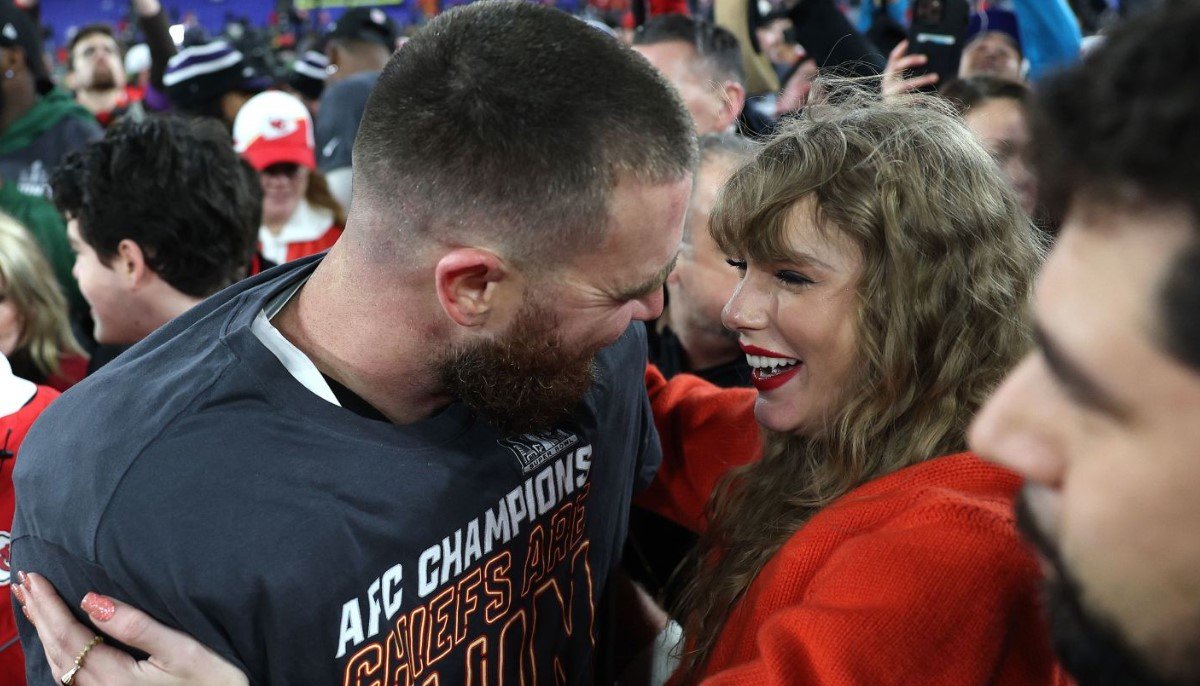Taylor Swift is one of the most successful and influential pop stars of our time. She has won 11 Grammy Awards, sold over 200 million records, and amassed a loyal fan base of millions. But she is also a controversial figure, who has been accused of being part of the “axis of evil” by some conservative commentators. How did Swift become a political symbol, and what does her involvement in the Super Bowl halftime show mean for her career and image?
The rise of Swift’s political voice
Taylor Swift started her career as a country singer, who mostly sang about love, heartbreak, and personal experiences. She was seen as a wholesome and relatable role model for young girls, who avoided controversy and politics. However, in recent years, Swift has become more vocal about her political views and social causes. She has spoken out against sexism, racism, homophobia, and sexual assault. She has also endorsed Democratic candidates, donated to various charities, and advocated for LGBTQ+ rights and voting rights.

Some of Swift’s most notable political moments include:
- In 2017, she won a sexual assault lawsuit against a former radio DJ who groped her during a photo op. She only asked for $1 in damages, and said she wanted to be an example for other victims of sexual assault.
- In 2018, she broke her silence on politics and endorsed two Democratic candidates in Tennessee, Phil Bredesen and Jim Cooper, for the US Senate and House of Representatives, respectively. She also encouraged her fans to register to vote, and criticized the Republican candidate Marsha Blackburn for her anti-LGBTQ+ and anti-women stances.
- In 2019, she released a song and a music video called “You Need to Calm Down”, which featured several LGBTQ+ celebrities and activists, and a petition for the Equality Act, which would protect LGBTQ+ people from discrimination. She also performed at the Stonewall Inn, a historic site of the gay rights movement, and received the Vanguard Award from GLAAD, an LGBTQ+ advocacy group.
- In 2020, she released a documentary called “Miss Americana”, which chronicled her personal and political journey, and revealed that she suffered from an eating disorder and faced pressure from her label and the media. She also released a song called “Only the Young”, which was inspired by the 2018 midterm elections and the youth activism for gun control and climate change. She also publicly supported Joe Biden and Kamala Harris for the US presidential election, and criticized Donald Trump for his handling of the COVID-19 pandemic and the Black Lives Matter protests.
The backlash from the right-wing media
Swift’s political activism has not gone unnoticed by the right-wing media, who have often criticized and mocked her for her views and actions. Some of the most vocal critics include:
- Tucker Carlson, a Fox News host, who called Swift a “mindless drone” and a “tool of the Democratic Party” after she endorsed the Democratic candidates in Tennessee. He also said that Swift “has no idea” what she is talking about, and that her fans should not listen to her.
- Laura Ingraham, another Fox News host, who tweeted a sarcastic “thumbs up” emoji after Swift’s endorsed candidate Phil Bredesen lost the Senate race to Marsha Blackburn. She also said that Swift should “shake it off”, referring to one of her hit songs.
- Michael Savage, a conservative radio host, who called Swift a “fool” and a “useful idiot” for supporting the Equality Act. He also said that Swift is part of the “axis of evil” that is destroying America, along with Nancy Pelosi, Chuck Schumer, and Bernie Sanders.
- Ben Shapiro, a conservative commentator, who said that Swift is a “sellout” and a “leftist activist” who is alienating her fan base. He also said that Swift is “virtue signaling” and “pandering” to the LGBTQ+ community and the Democrats.
The Super Bowl halftime show controversy
Swift’s political stance has also sparked controversy over her involvement in the Super Bowl halftime show, which is one of the most watched and anticipated events in American culture. Swift is rumored to be one of the performers for the show, along with other artists such as Jennifer Lopez, Shakira, and Pitbull. However, some fans and critics have expressed their opposition to Swift’s participation, citing her political views and her feud with Scooter Braun, the manager of Justin Bieber and Ariana Grande, who owns the rights to Swift’s first six albums.
Some of the arguments against Swift’s performance include:
- She is too political and divisive for a national event that is supposed to be about unity and entertainment. She might use the platform to promote her agenda and criticize the Trump administration or the Republican Party.
- She is too controversial and unpopular for a mainstream audience that is mostly conservative and patriotic. She might face backlash and boycotts from the viewers and the sponsors, who might prefer more neutral and appealing artists.
- She is too hypocritical and opportunistic for a show that is associated with the NFL, which has been accused of racism and sexism. She might be seen as supporting an organization that has mistreated players like Colin Kaepernick, who protested against police brutality and racial injustice by kneeling during the national anthem.
The implications for Swift’s career and image
Swift’s involvement in the Super Bowl halftime show, whether confirmed or not, has implications for her career and image, both positively and negatively. Some of the possible outcomes include:
- She could gain more respect and admiration from her fans and the public, who might appreciate her courage and authenticity. She could also inspire and empower more people to speak up and take action for their beliefs and causes.
- She could lose more support and popularity from her critics and the media, who might resent and ridicule her for her choices and statements. She could also face more challenges and obstacles in her industry and society, such as lawsuits, censorship, and harassment.
- She could create more awareness and discussion about the issues and topics that she cares about, such as LGBTQ+ rights, voting rights, and women’s rights. She could also influence and shape the political and cultural landscape of the country and the world.




































